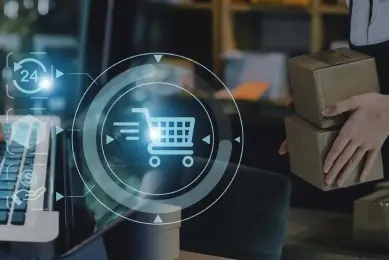Introduction
The Consumer-Packaged Goods (CPG) industry is a massive and highly competitive sector encompassing many products, including food, beverages, household goods, and personal care items. CPG companies must effectively manage their infrastructure services to remain competitive in this industry. These services are critical for ensuring product smooth production, distribution, and delivery to consumers. However, managing infrastructure services in the CPG industry comes with its own set of unique challenges. In this blog, we will explore CPG companies’ top three challenges.
Supply Chain Complexity
One of the most significant challenges in managing infrastructure services in the CPG industry is the complexity of the supply chain. CPG companies often source raw materials from various suppliers, manufacture products at multiple facilities, and distribute them through extensive networks. This complexity is exacerbated by changing consumer preferences, global sourcing, and supply chain disruptions, such as the COVID-19 pandemic.
a. Global Sourcing: CPG companies frequently source raw materials and components worldwide to reduce costs or access specialized resources. This global approach introduces supply chain visibility, transportation, and regulatory compliance challenges. Managing infrastructure services across international boundaries requires a deep understanding of trade regulations, logistics, and customs procedures.
b. Demand Variability: Consumer preferences in the CPG industry can be fickle, with demand patterns changing rapidly. Seasonal fluctuations, marketing campaigns, and external events (like a pandemic) can lead to sudden shifts in demand. Managing infrastructure services effectively means responding quickly to these changes to avoid overstocking or stockouts.
c. Supply Chain Disruptions: The CPG industry is vulnerable to supply chain disruptions caused by natural disasters, labor strikes, geopolitical tensions, and health crises. These disruptions can lead to delays in production and distribution, impacting customer satisfaction and revenue. To mitigate such risks, CPG companies need robust infrastructure service management, including contingency planning, risk assessment, and diversification of suppliers and transportation routes.
Technology Integration
As technology advances, CPG companies face the challenge of integrating and optimizing various technologies into their infrastructure services. These technologies include:
a. IoT and Data Analytics: The Internet of Things (IoT) has revolutionized the CPG industry by providing real-time data on supply chain operations, product performance, and customer behavior. However, integrating IoT devices and leveraging data analytics effectively can be challenging. CPG companies must invest in the right infrastructure to collect, process, and act on this wealth of data.
b. Automation and Robotics: Automation and robotics are transforming manufacturing and distribution processes in the CPG industry. Implementing these technologies requires significant capital investment and expertise in managing and maintaining automated systems. Infrastructure services must support the integration of these technologies seamlessly.
c. E-commerce Platforms: The growth of e-commerce has forced CPG companies to expand their online presence. This involves managing digital infrastructure, including e-commerce platforms, mobile apps, and online customer support. Ensuring these digital services’ reliability, security, and scalability is a constant challenge.
Regulatory Compliance
The CPG industry is subject to various regulations and standards regarding product safety, labelling, advertising, and environmental sustainability. Managing infrastructure services while complying with these regulations is a persistent challenge for CPG companies.
a. Product Traceability: CPG companies must be able to trace the origin of raw materials and ingredients used in their products. This is essential for ensuring the products’ safety and complying with regulations. Implementing robust traceability systems in the supply chain requires integrating technology and coordination across suppliers.
b. Packaging and Waste Management: Regulations related to packaging materials and waste disposal are becoming increasingly stringent. CPG companies must invest in sustainable packaging solutions and implement efficient waste management practices. This often involves changes in manufacturing processes and distribution methods. c. Labeling and Advertising: Accurate and compliant labeling is crucial in the CPG industry, especially when marketing products to different regions or countries. Infrastructure services must support the rapid adaptation of labels and advertising materials to meet regulatory requirements, which can vary widely.
Conclusion
Managing infrastructure services in the Consumer-Packaged Goods (CPG) industry is complex and multifaceted. CPG companies must navigate the challenges posed by supply chain complexity, technology integration, and regulatory compliance to ensure their products’ smooth production, distribution, and delivery.
To address these challenges effectively, CPG companies must invest in advanced technology, build resilient supply chains, and maintain a strong focus on compliance with industry-specific regulations. By doing so, they can not only meet the demands of a dynamic market but also ensure the safety and satisfaction of their customers.


